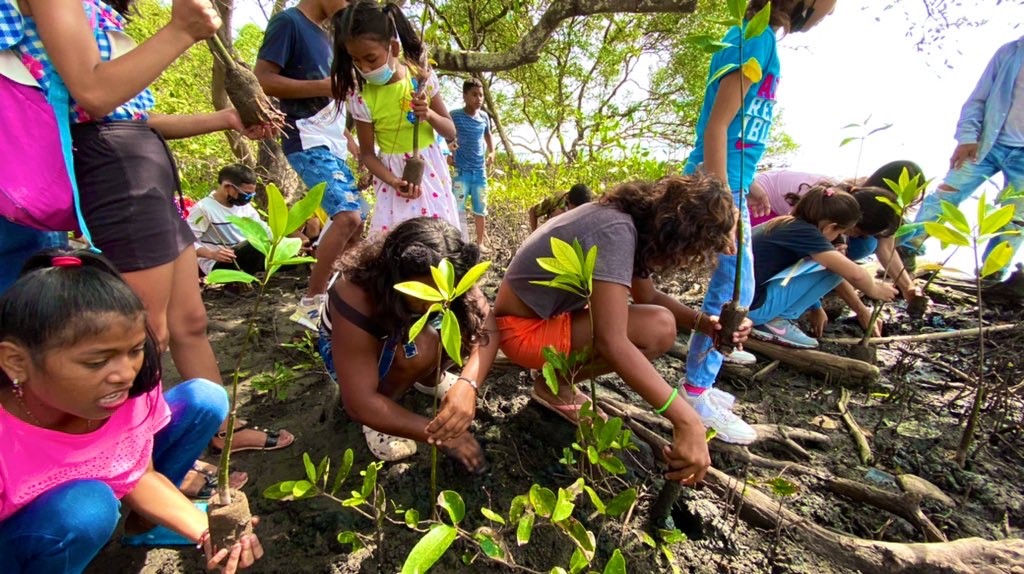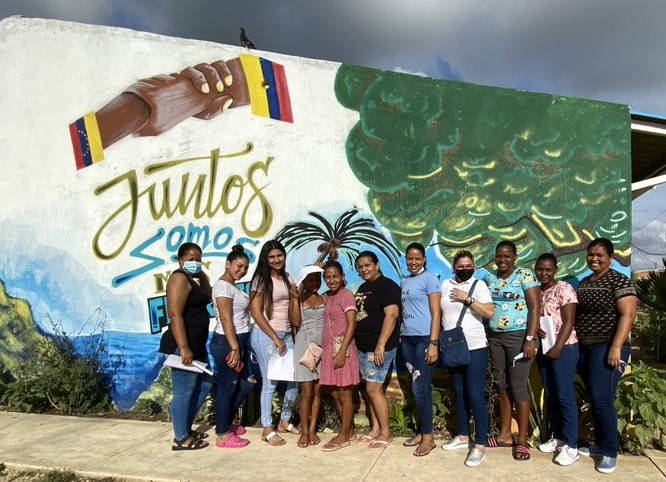
“Caring for the environment has become an opportunity to strengthen community integration.” This is how Maye, a Venezuelan leader from Villa del Mar, summarizes the initiative led by 5 Colombian and 5 Venezuelan women that takes the environment as a platform for integration between refugees, migrants and the host community in Barranquilla.
Within the framework of the Territorial Action Plan of the ITU La Playa, with the support of the Inclusive Cities, Communities of Solidarity project, a group of women environmental leaders was formed in order to promote environment care and protection, waste management and mitigation of health risk factors, for the health and well-being of the Villa del Mar community.
Thus, taking advantage of the co-creation workshops for the formulation of the Territorial Scale Action Plan of the La Playa ITU, these Colombian and Venezuelan women from Villa del Mar identified the following problems associated with health andenvironment: inadequate disposal of solid waste due to a lack of public service coverage, proliferation of diseases due to environmental pollution and, finally, indiscriminate felling of native mangroves in the edge of the Mallorquin wetland. These problems have a direct impact on the low quality of life of the inhabitants of the sector as well as imply greater risks of flooding and contamination of the territory.
The support of Inclusive Cities has consisted of two training workshops on Sustainable Development Goals, New Urban Agenda, Right to the City, Environment and Leadership with a Gender Approach.

At the same time, the leaders have proposed developing different actions in the sector, which would make environment care and protection an opportunity to build a more supportive and inclusive community; these actions are: 1) Planting native mangroves on the edge of the Mallorquin wetleand; 2) Solid waste management campaigns for homes; 3) Public space cleaning days; 4) Campaigns on the disposal of solid waste in public spaces, among others.
To date, there are already 20 women, half Colombian and half Venezuelan, who have joined this environmental leadership initiative with a gender focus. In addition to the workshops, there have been two community clean-up days, two native mangrove planting days with the participation of eighty refugee, migrant and host community children and adolescents.